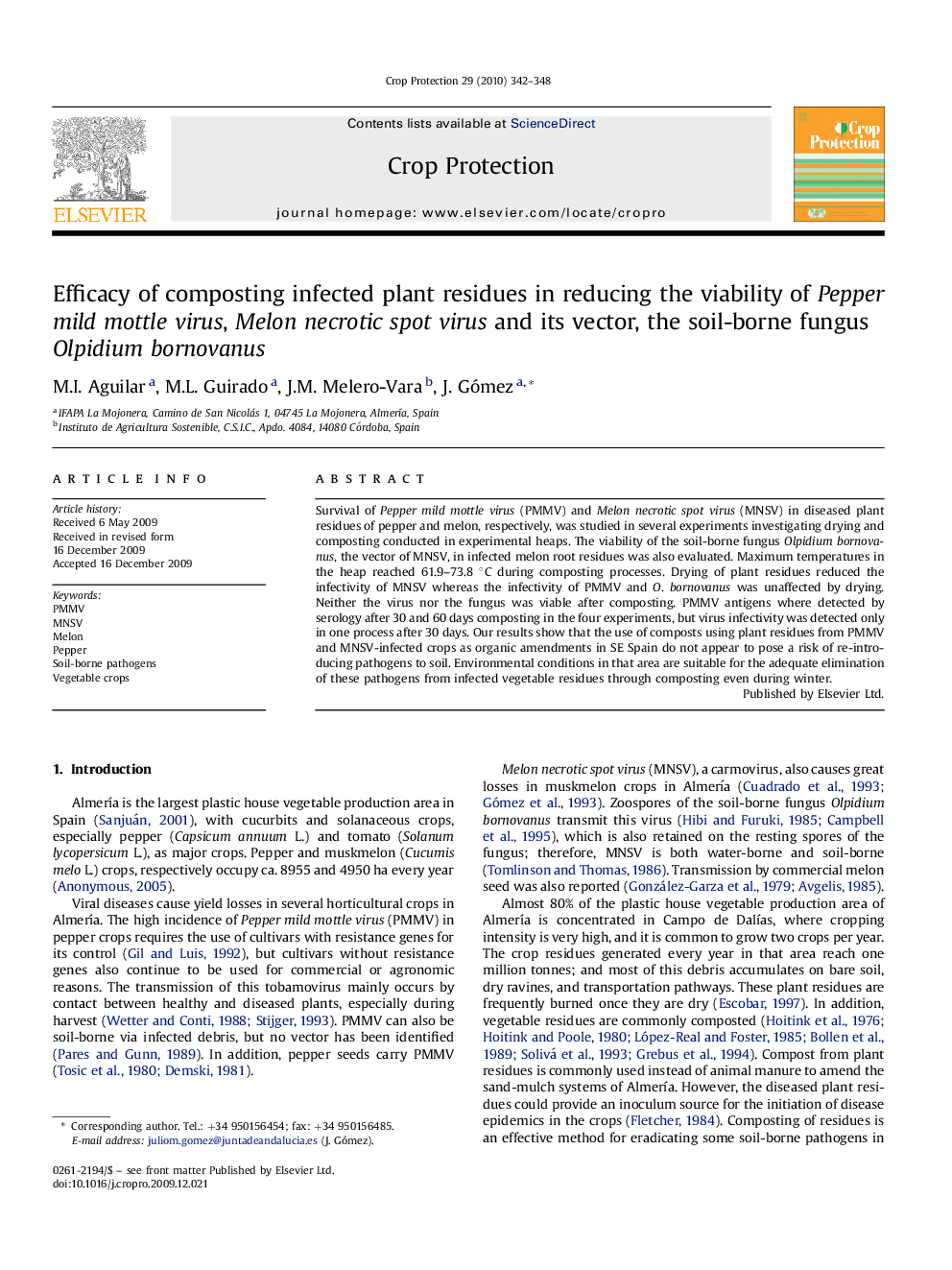| کد مقاله | کد نشریه | سال انتشار | مقاله انگلیسی | نسخه تمام متن |
|---|---|---|---|---|
| 4507467 | 1321357 | 2010 | 7 صفحه PDF | دانلود رایگان |
عنوان انگلیسی مقاله ISI
Efficacy of composting infected plant residues in reducing the viability of Pepper mild mottle virus, Melon necrotic spot virus and its vector, the soil-borne fungus Olpidium bornovanus
دانلود مقاله + سفارش ترجمه
دانلود مقاله ISI انگلیسی
رایگان برای ایرانیان
کلمات کلیدی
موضوعات مرتبط
علوم زیستی و بیوفناوری
علوم کشاورزی و بیولوژیک
علوم زراعت و اصلاح نباتات
پیش نمایش صفحه اول مقاله

چکیده انگلیسی
Survival of Pepper mild mottle virus (PMMV) and Melon necrotic spot virus (MNSV) in diseased plant residues of pepper and melon, respectively, was studied in several experiments investigating drying and composting conducted in experimental heaps. The viability of the soil-borne fungus Olpidium bornovanus, the vector of MNSV, in infected melon root residues was also evaluated. Maximum temperatures in the heap reached 61.9-73.8 °C during composting processes. Drying of plant residues reduced the infectivity of MNSV whereas the infectivity of PMMV and O. bornovanus was unaffected by drying. Neither the virus nor the fungus was viable after composting. PMMV antigens where detected by serology after 30 and 60 days composting in the four experiments, but virus infectivity was detected only in one process after 30 days. Our results show that the use of composts using plant residues from PMMV and MNSV-infected crops as organic amendments in SE Spain do not appear to pose a risk of re-introducing pathogens to soil. Environmental conditions in that area are suitable for the adequate elimination of these pathogens from infected vegetable residues through composting even during winter.
ناشر
Database: Elsevier - ScienceDirect (ساینس دایرکت)
Journal: Crop Protection - Volume 29, Issue 4, April 2010, Pages 342-348
Journal: Crop Protection - Volume 29, Issue 4, April 2010, Pages 342-348
نویسندگان
M.I. Aguilar, M.L. Guirado, J.M. Melero-Vara, J. Gómez,